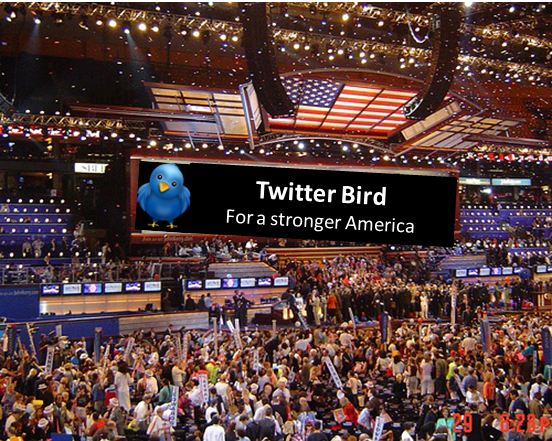Guest blogger and political pundit Jenci Spradlin reveals why business should take a marketing lesson from the politicians:
Maybe it’s because I’m a political junkie and spend most of my time discussing politics on the social web, but I think the business world would do well to try to translate lessons from politics into strategy.
1) Capture passion. What is politics really about any way? Capturing the passion people have to tell their story and connecting with people who can possibly influence their lives. Politics brings out the tribal feelings engendered by sharing something larger than yourself with like-minded individuals.
There are people who get passionate about a brand, but by far politics wins the passion prize, particularly with the stakes so high. Successful campaigns tap into that passion … whether in politics or business.
2) Use the right tools for the right message. Let’s think about how politicians use the social web and how it might relate to business, too. I used to do a lot of political blogging, but I have practically abandoned it due to the more immediate nature of Twitter and Facebook. Blogging by a politician might be a good way to convey a detailed overview of some complex policy matter, but in terms of engagement with voters, it is like putting an op-ed in the newspaper versus going door to door talking directly to voters. Probably the same with businesses?
3) Go meet the people. Another analogy is that politicians have to go where their constituents are. If they are on Twitter or Facebook, that is where they must go and be as comfortable engaging directly as they would in person. Politicians are still trying to figure out the right mix in terms of direct engagement versus broadcasting and not all of them do this well. If you want to look at some people really doing this right, look at common-cause issues such as the Teaparty Movement.
4) Show genuine interest. There is no one issue that brings people to the political table, and businesses should think like that too. Businesses would do well to not limit themselves or their brand to one specific area, but again, allow their “raving fans” to intertwine the brand within their lives, and allow real people working on behalf of the brand to engage directly as people, and not as a generic brand account. Even if the person isn’t identified by name, it is easy to tell when the company takes a larger interest in its customers beyond “buy what I am selling.”
5) The authenticity issue. And then there is that all-important authenticity issue. There are plenty of politicians who do embrace Twitter, and certainly there are those who have staff members do it on their behalf. I find that the more local you get, the more likely you are to have the individual do their own posts. That might be something for businesses to consider to. The closer you get to the rubber meeting the road, the more real you better be!
6) Get personal. Here’s something that makes politicians seem authentic on the social web: Real life “stuff.” People like to make fun of the “what-I-had-for-lunch” posts, but I find those to be an invaluable way to connect in a non-threatening way (assuming they post some meat with their meat!) Some of the greatest connections I have made with people have started through the “what I’m eating” post. We all have to eat – whether you are a famous politician, a stay-at-home mom, or a CEO.
In the same manner, there are plenty of brands / businesses who are being told to jump into social media because “everyone is doing it.” It seems scary to them and something that should be handed off to an outside firm to manage. So they do and some PR intern is handed the job of posing as the brand/business online. This is just the same as the politician who abdicates their use of social media to a staffer. For me, whether it is a brand or a politician, I am not interested in carrying on a conversation with a ventriloquist’s dummy. The insanity is that they honestly think that we won’t know the difference; that we won’t see the arm of staffers stuck up under their collective shirts.
Heck, as long as it’s real, it would even be OK to tweet about meat. : )
Jenci Spradlin is a wonderful political blogger at http://moderatelymarvelous.wordpress.com/ She can also be found on twitter at @jencitn
Y882S4FUAW4W



